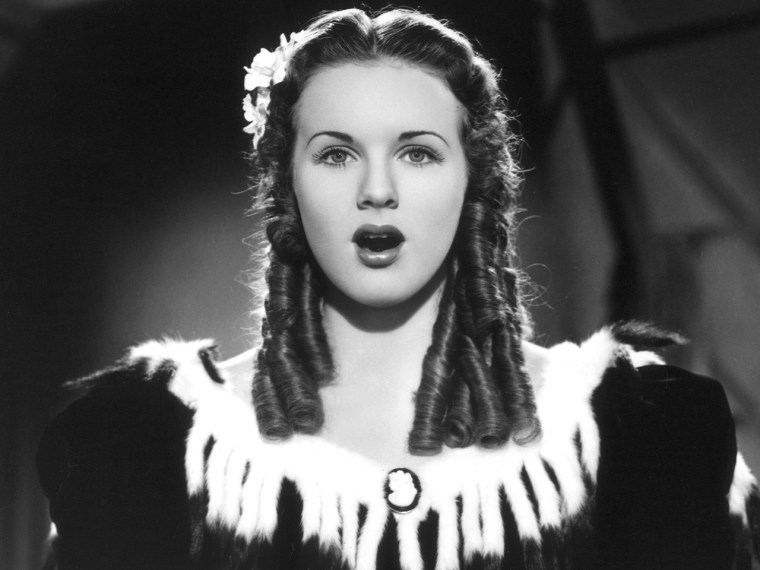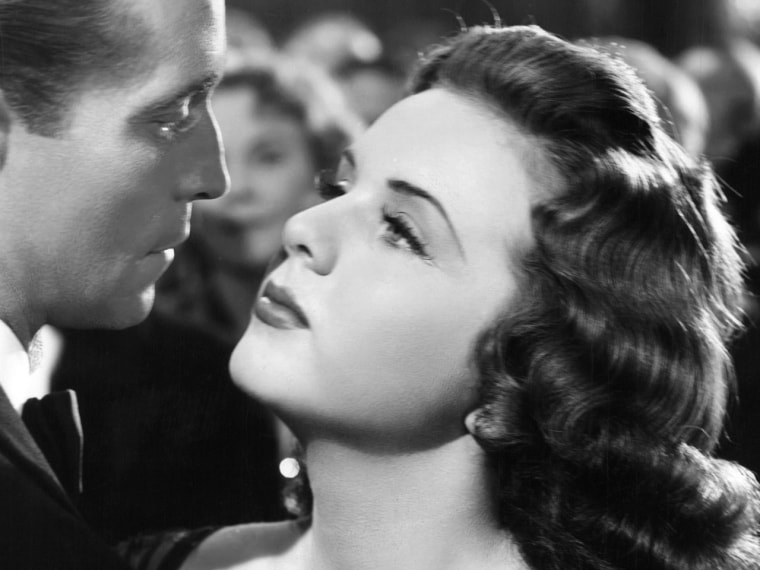
She was a child star with a striking singing voice who retired from the business in her twenties, but Deanna Durbin, whose death at 91 was announced Tuesday, remained a beloved screen actress long after her star had faded.
The Deanna Durbin Society's newsletter announced her death, quoting her son Peter H. David, said the New York Times. He indicated that she died "a few days ago," but provided no other details. He also thanked fans for respecting her privacy.
Born in Winnipeg, Manitoba in 1921, Durbin was a familiar face to the Depression-era audiences who flocked to movie houses. Signed to MGM at 13, she made her first film alongside Judy Garland in the 1936 short "Every Sunday." The oft-repeated story is that MGM head Louis B. Mayer, away on a trip, instructed his employees to "drop the fat one" from the studio's contract -- and they let Durbin go, but Mayer had meant Garland.
She was picked up at Universal and the subsequent success of her next films, including "Three Smart Girls" (and its two sequels) were credited with keeping the studio aloft. A 1936 nationwide search for the actor who would give her her first screen kiss made news, and Robert Stack was the actor chosen for "First Love."
By 1946 she was the second-highest paid woman in America, just $5,000 behind Bette Davis. At the height of her success she was so internationally-recognized that Anne Frank had her picture on the bedroom in the attic where she and her family lived; the photo still hangs today.
Durbin was often cast in musicals, and had a clear soprano that permitted her to cover a range from pop tunes to opera. Still, when she auditioned for the lead role in Disney's "Snow White," Walt Disney reportedly considered the then 15-year-old as sounding mature for the part. She recorded dozens of songs, including recreations of her movie tunes that were released commercially, and standards including "Love's Old Sweet Song" and "God Bless America."
Unfortunately, she had a harder time adjusting to the light, fluffy roles that had brought her early success; critics weren't happy to see her as a prostitute in 1944's "Christmas Holiday," for example. It also affected her personal relationships, and she divorced her husband of two years, director Vaughn Paul, in 1943. She was married twice more, to producer Felix Jackson and Charles David (director of "Lady on a Train"). Her union with David lasted from 1950 until 1999, when he died.
Durbin made her last film in 1948 ("For the Love of Mary") and retired to a French farmhouse with David, never again dipping her toes into Hollywood waters. She gave almost no interviews, but was quoted in the Times as having said "I hated being in a goldfish bowl."
A letter she sent reporters in 1958 read in part: "I was a typical 13-year-old American girl. The character I was forced into had little or nothing in common with myself -- or with other youth of my generation, for that matter. I could never believe that my contemporaries were my fans. They may have been impressed with my 'success.' But my fans were the parents, many of whom could not cope with their own youngsters. They sort of adopted me as their ‘perfect’ daughter.”
She added, "I was never happy making pictures. I’ve gained weight. I do my own shopping, bring up my two children and sing an hour every day."
